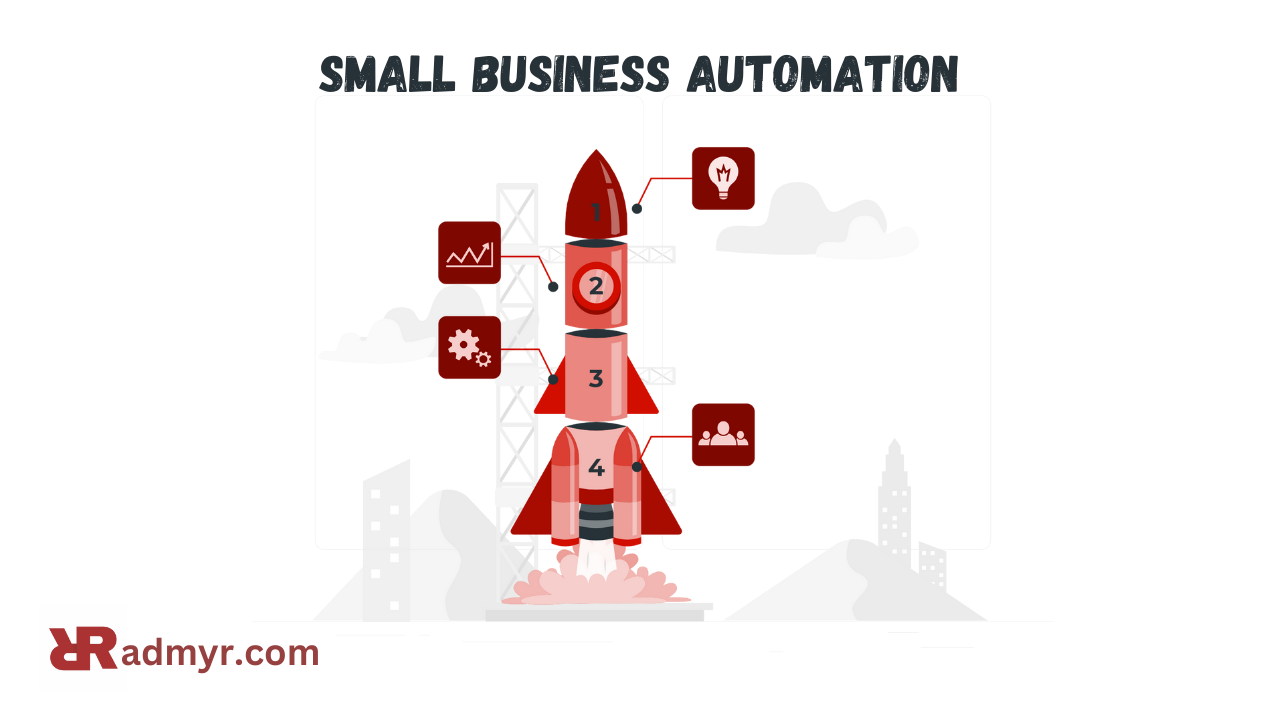For many small business owners, marketing can feel overwhelming. Between social media management, email campaigns, customer segmentation, and analytics, the workload quickly becomes unmanageable — especially without a dedicated marketing team. That’s where technology steps in.
Today, an AI marketing assistant for small business automation is no longer a futuristic concept; it’s a practical, affordable tool that helps entrepreneurs save time, reduce costs, and compete with larger companies. By combining artificial intelligence with automation, small businesses can create smarter marketing campaigns, engage customers more effectively, and drive consistent growth.
This guide will break down what an AI marketing assistant is, how it works, and why it’s a game-changer for small businesses looking to scale without breaking the bank.
What Is an AI Marketing Assistant for Small Business Automation?
An AI marketing assistant for small business automation is a software solution powered by artificial intelligence that helps streamline repetitive marketing tasks. Unlike traditional tools, which require manual setup for every campaign, AI assistants learn from your data and adapt strategies automatically.
Typical capabilities include:
- Automated Content Creation – Writing social posts, ad copy, and product descriptions.
- Customer Segmentation – Grouping customers based on behavior, demographics, or purchase history.
- Campaign Scheduling – Managing multi-channel campaigns across email, social media, and ads.
- Performance Analytics – Providing real-time insights into what’s working and what isn’t.
- Personalized Marketing – Adjusting content and offers based on customer behavior.
👉 For example, a local coffee shop could use an AI assistant to automatically send personalized discounts to frequent customers while scheduling Instagram posts about new seasonal drinks — all without hiring a marketing manager.
Why Small Businesses Need AI Marketing Automation
Running a small business often means wearing multiple hats — owner, marketer, salesperson, customer service rep, and strategist. This creates two major challenges: time and resources.
Here’s how an AI marketing assistant for small business automation solves those challenges:
- Saves Time
Instead of spending hours drafting social media posts or analyzing spreadsheets, AI automates repetitive tasks so business owners can focus on growth. - Cost-Effective
Hiring a full marketing team is expensive. AI assistants act like a “virtual marketing manager” for a fraction of the cost. - Consistency in Marketing
Small businesses often struggle with consistent messaging. AI ensures campaigns run regularly, increasing visibility and customer trust. - Better Decision Making
AI tools analyze large amounts of data to identify trends and make smarter recommendations. This means even businesses with no marketing expertise can compete effectively.
According to Salesforce’s SMB Trends Report, over 55% of small businesses that adopt automation tools report higher productivity and improved customer engagement.
Key Features of AI Marketing Assistants
Not all tools are the same, but most AI marketing assistants for small business automation share these features:
- Smart Content Suggestions: Recommending blog topics, ad headlines, and social captions based on trending keywords.
- Automated Email Campaigns: Sending emails triggered by customer behavior, such as abandoned carts or birthdays.
- Chatbot Integration: Providing 24/7 customer support and guiding leads through the sales funnel.
- Social Media Management: Auto-scheduling posts and analyzing engagement.
- A/B Testing: Experimenting with multiple campaign versions and automatically choosing the best-performing one.
These features help small businesses not only save effort but also improve results by using AI-powered insights.
How to Implement an AI Marketing Assistant for Small Business Automation
Step 1: Identify Repetitive Marketing Tasks
Before adopting an AI marketing assistant for small business automation, start by mapping out the marketing tasks that consume the most time. For most small businesses, these include:
- Posting on social media
- Responding to customer inquiries
- Writing emails and newsletters
- Tracking ad performance
- Segmenting customers for promotions
👉 The rule of thumb: if a task is time-consuming, repetitive, and follows a predictable pattern, it’s a good candidate for automation.
Step 2: Choose the Right AI Assistant for Your Needs
Not all AI tools serve the same purpose. Some focus heavily on content generation, others on customer engagement, and others on analytics. To maximize ROI, small businesses should:
- E-commerce Stores → Choose AI assistants with features like product recommendation engines and abandoned cart recovery.
- Service Businesses → Prioritize scheduling, chatbots, and email marketing automation.
- Local Businesses → Look for tools that combine social media management with review monitoring and reputation management.
A good starting point is testing free or affordable AI-powered platforms such as:
- HubSpot’s Marketing Hub – AI-driven email workflows and lead management.
- Hootsuite OwlyWriter AI – Content generation and social automation.
- ActiveCampaign – Customer segmentation and behavior-based email triggers.
- ManyChat – AI-powered chatbots for Facebook, Instagram, and WhatsApp.
Step 3: Integrate AI Into Your Existing Tools
The best AI marketing assistants for small business automation are those that integrate seamlessly with your existing stack — whether that’s Shopify, WordPress, or a CRM like Salesforce.
For example:
- Connect your AI assistant to Google Analytics for real-time insights.
- Link with Shopify to personalize offers based on purchase history.
- Sync with social media platforms to publish content automatically.
The goal isn’t to replace your tools, but to connect them so that AI can coordinate everything.
Step 4: Personalize Customer Journeys
One of the biggest advantages of an AI marketing assistant for small business automation is the ability to personalize at scale. AI can tailor experiences by:
- Sending a discount coupon to first-time visitors.
- Offering loyalty rewards to repeat customers.
- Sending an educational email series to leads who aren’t ready to buy yet.
This creates a sense of human connection while still running on automation.
Step 5: Measure and Optimize
AI doesn’t just execute — it learns. That means you should constantly review performance and let the assistant refine campaigns.
Track metrics like:
- Open and click-through rates (email)
- Conversion rates (ads and landing pages)
- Engagement rates (social media)
- Customer lifetime value (CRM data)
According to McKinsey, businesses that leverage AI for personalization see up to 40% more revenue growth compared to competitors who don’t.
Real-World Use Cases
🔹 Example 1: E-commerce Boutique
A small online clothing store uses an AI marketing assistant to send product recommendations to customers based on browsing history. Cart abandonment emails trigger automatically, increasing recovery rates by 25%.
🔹 Example 2: Local Coffee Shop
Instead of manually posting daily specials, the shop uses AI to schedule Instagram and Facebook posts, while a chatbot answers customer questions about opening hours and menu items.
🔹 Example 3: Digital Agency
A 5-person marketing agency serving multiple clients leverages an AI assistant to create keyword-rich blog posts, schedule social content, and track ad performance, freeing up time to focus on creative strategy.
Advanced Strategies & Future Benefits of AI Marketing Assistants for Small Business Automation
Advanced Strategies for Maximizing ROI
Once you’ve adopted an AI marketing assistant for small business automation, the real power comes from moving beyond basic automation into advanced strategies.
1. Multi-Channel Marketing Automation
AI tools can unify messaging across email, SMS, social media, and even paid ads. Instead of managing each channel separately, the assistant ensures campaigns are consistent.
- Example: A seasonal campaign can be launched simultaneously across Facebook, Instagram, email, and Google Ads with minimal input.
2. Predictive Analytics for Smarter Decisions
Modern AI assistants don’t just react — they predict customer behavior. By analyzing past data, AI can forecast which campaigns are likely to succeed and which customers are most likely to convert.
👉 According to Harvard Business Review, predictive analytics helps companies increase customer acquisition and retention by identifying high-value segments early.
3. AI-Powered A/B Testing
Instead of running manual A/B tests, AI assistants can test dozens of versions of headlines, CTAs, and email subject lines simultaneously. The system automatically shifts budget toward the best-performing versions.
4. Behavioral Triggers for Hyper-Personalization
AI assistants can detect micro-behaviors — such as time spent on a product page — and instantly trigger personalized actions.
- Example: A visitor spending 3 minutes on a shoe page gets a chatbot offer for free shipping.
Future Trends in AI Marketing for Small Businesses
🔹 Conversational AI
Chatbots are evolving into full conversational assistants capable of natural dialogue and even upselling. Imagine a small store chatbot that not only answers product questions but suggests complementary products.
🔹 Voice Search Integration
With the rise of Alexa and Google Assistant, AI tools will soon optimize campaigns for voice search queries, requiring landing pages and content tailored to conversational language.
🔹 Affordable AI-as-a-Service Models
Until recently, AI marketing automation was limited to large enterprises. Now, subscription-based models make advanced assistants accessible to small businesses with monthly costs as low as $30–$50.
🔹 AI-Powered Content at Scale
Tools like Jasper and Copy.ai already generate blog posts and ad copy. The future will bring assistants that analyze competitors in real-time and adapt campaigns instantly.
For a deeper look at trends, Gartner’s AI research predicts that by 2030, most marketing interactions will be AI-assisted.
Long-Term Benefits of AI Marketing Assistants
- Time Savings Compound – Small businesses reclaim hundreds of hours annually.
- Improved Customer Relationships – Personalized campaigns increase loyalty.
- Revenue Growth – Consistency in marketing directly correlates with sales growth.
- Leveling the Playing Field – Even micro-businesses can compete with large corporations by leveraging automation.
- Scalability Without Headcount – Instead of hiring more staff, businesses can scale campaigns with minimal cost increases.
According to Forbes, small businesses using AI-powered automation report 20–40% efficiency gains across marketing and sales.
Final Thoughts
The adoption of an AI marketing assistant for small business automation is no longer optional — it’s becoming essential. As customers expect faster responses, personalized offers, and seamless experiences, AI assistants give small businesses the edge they need to thrive in competitive markets.
The key is finding the right balance: let AI handle the heavy lifting while owners and marketers focus on strategy, creativity, and building authentic customer relationships.
👉 In short: AI drives efficiency, humans drive connection. Together, they create sustainable small business growth.
Frequently Asked Questions (FAQs)
1. What is an AI marketing assistant for small business automation?
An AI marketing assistant is a tool that automates repetitive marketing tasks such as social media posting, email campaigns, customer segmentation, and performance tracking. It helps small businesses save time, reduce costs, and deliver personalized campaigns.
2. Is an AI marketing assistant expensive for small businesses?
Not necessarily. Many affordable AI marketing assistants start at around $30–$100 per month, making them accessible even to startups and local businesses. The cost is often much lower than hiring additional marketing staff.
3. How does an AI marketing assistant improve customer engagement?
By analyzing customer data, AI assistants can deliver personalized messages, product recommendations, and behavior-based campaigns. This leads to better customer experiences and higher engagement rates compared to generic campaigns.
4. Can an AI marketing assistant replace a human marketer?
No. While AI can automate repetitive tasks and provide insights, human marketers are still essential for creativity, strategy, and brand storytelling. The best results come from combining AI automation with human expertise.
5. What are the risks of relying on AI marketing automation?
The main risks include over-automation (making campaigns feel robotic), lack of brand personality, or relying too heavily on data without human oversight. Small businesses should always review AI-generated content to ensure it aligns with their voice and values.


Leave a Reply